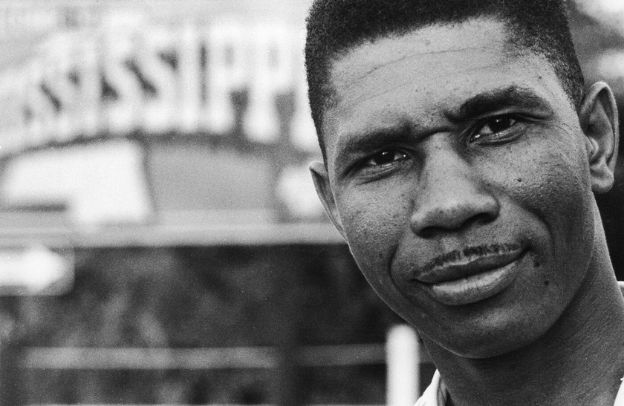Medgar Wiley Evers (American Civil Rights Activist) The Storytelling Series

Yesterday I was reading an interesting story about the life of an extraordinary personality, Medgar Wiley Evers. This was what got my attention in the story
“Evers”, said the story “was determined to make something of himself, despite the hatred of local white people. After dropping out of high school at seventeen, he joined the army and soon found himself fighting on Europe’s battlefields during World War II.”
Want to learn more about the power of storytelling? Start by DOWNLOADING a free chapter of The Storytelling Series: Beginners’ Guide for Small Businesses & Content Creators by Obehi Ewanfoh.
Now where are you in your life journey? Do you see all the cards stacked up against you and you maybe do not see a way out in your current situation? Do not lose hope because there are still a lot of opportunities you can step into. All you need to do is to look at men and women like you in history and how they have stepped out of their comfort zones and to write their names on the signs of time.
That is what we are here to learn today, flipping through the pages of history and learning from the memory clips of Medgar Evers.
Hello and welcome to today’s presentations on the Life & Legacy of prominent individuals who have shaped our history and our society.
But who is Evers?
Well, for those of you who might not know, Medgar Evers was a prominent civil rights activist who dedicated his life to fighting for racial equality in the United States. He was born July 2, 1925, in Mississippi, and served as the field secretary for the National Association for the Advancement of Colored People (NAACP) in the state. Evers also served in the US Army during World War II, and after his service, he pursued higher education and earned a Bachelor of Arts degree in business administration.
Evers was a passionate advocate for the integration of public schools, and he worked tirelessly to challenge the policies of the University of Mississippi following the landmark Supreme Court case Brown v. Board of Education, which declared segregation in public schools unconstitutional. His efforts to bring about change were met with opposition and hostility, and he became a target for those who opposed racial integration in the country.
There can be no doubt that Medgar Evers was a courageous civil rights activist who devoted his short life to fighting against racism in the deeply divided South. Despite serving in the Battle of Normandy during World War II, he experienced first-hand the harsh reality that being a Black man in America did not grant him equal rights or protection from racial discrimination.
How his activism began
Evers’ activism began when he and five friends were turned away from a local election at gunpoint. He then attended Alcorn State University, a historically Black college in Mississippi, and took a job selling life insurance in the predominantly Black town of Mound Bayou. It was there that he became the president of the Regional Council of Negro Leadership (RCNL), an organization that fought for Black rights and equality.
As the head of the RCNL, Evers organized a boycott of gas stations that denied Black people access to their restrooms. He distributed bumper stickers with the slogan “Don’t Buy Gas Where You Can’t Use the Restroom,” and his annual conferences between 1952 and 1954 in Mound Bayou attracted tens of thousands of attendees.
In addition to his activism, Evers played a significant role in the civil rights movement and served as the NAACP’s first field officer in Mississippi. He fought against cruel Jim Crow laws, protested segregation in education, and launched an investigation into the brutal lynching of Emmett Till.
Emmett Louis Till was a young African American teenager, who was forcefully taken, subjected to cruel acts of torture, and unlawfully executed through lynching in Mississippi in the year 1955. The victim was only 14 years old and maybe that should strike a chord in your heart if you understand what it means.
That is how serious it was for Evers and other individuals who dedicated their lives to fighting for racial equality and justice. That is why they, especially those who have paid the ultimate price for freedom, should forever be remembered, and honored as an inspiration for generations to come.
His assassination in 1963
Sadly, Evers was assassinated by a white supremacist in 1963, which sparked widespread outrage and grief among civil rights activists and supporters. His legacy, however, continues to inspire people today. His death catalyzed numerous civil rights protests, and it inspired countless works of art, music, and film that reflect his life and the ongoing struggle for racial justice in the United States.
As a veteran, Evers was buried with full military honors at Arlington National Cemetery, a testament to his bravery and service to his country. Today, he is remembered as a hero and an icon in the fight for civil rights, whose sacrifice and dedication continue to inspire future generations to fight for a more just and equitable world.
Your Takeaway
Know what is right for you and your people and do it because you will not be here forever. And know that change does not happen by chance. It takes a consistent effort to effect it just as it takes another deliberate effort to be sure that those experiences are never forgotten.
Want to learn more about the power of storytelling? Start by DOWNLOADING a free chapter of The Storytelling Series: Beginners’ Guide for Small Businesses & Content Creators by Obehi Ewanfoh.





